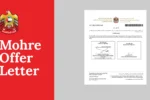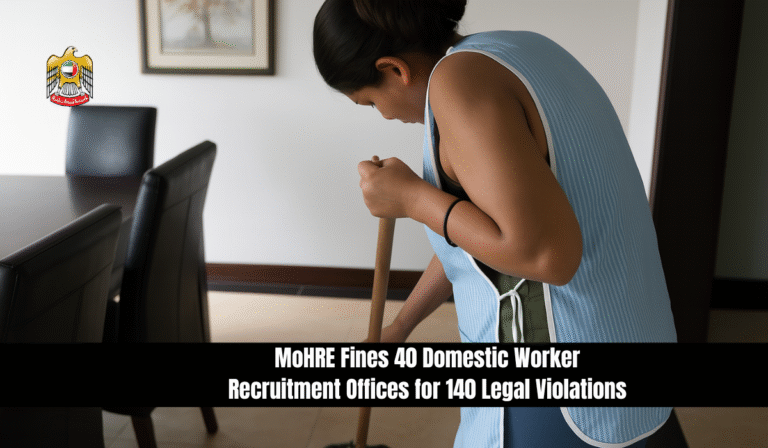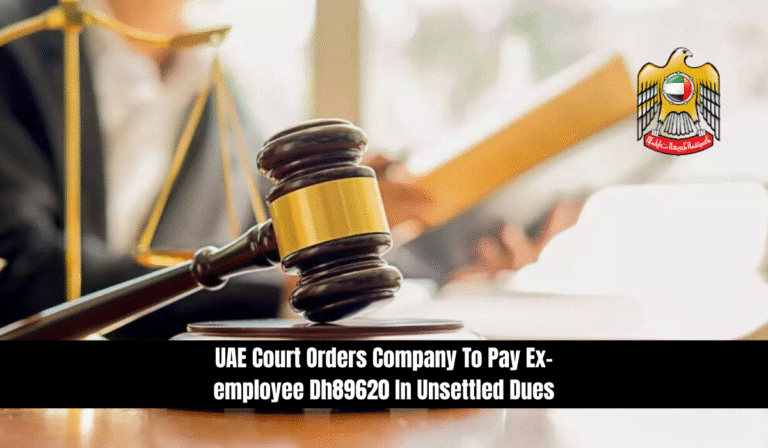Sharjah Extends New Govt Employee Probation Period to 9 Months

Sharjah Extends New Govt Employee Probation Period to 9 Months. Sharjah has introduced a groundbreaking reform in its public sector employment structure by officially extending the government employee probation period from six to nine months. This move, embedded within the new Human Resources Law executive regulation, underscores Sharjah’s commitment to enhancing workforce productivity, supporting Emirati employment, and fostering inclusion for people of determination.
The extended probation period aims to give new Emirati hires more time to demonstrate their abilities and adjust to the demands of government roles. The change is part of a wider set of updated HR policies that also address organizational structures, recruitment processes, inclusivity, and employee welfare.
New HR Executive Regulation in Sharjah
The updated HR policies introduced by the Sharjah Human Resources Department bring several changes that affect both new and existing government employees. Below is a table summarizing the major provisions:
| Feature | Details |
|---|---|
| Probation Period | Extended from 6 to 9 months for all new government employees |
| Extension Clause | Additional 3-month probation extension allowed from date of appointment upon hiring entity’s approval |
| Organizational Structures | Government bodies must prepare and submit organizational structure projects for approval |
| Job Description Manual | Centralized and standardized job classification system to be introduced |
| Support for Emirati Employment | New job grades created for Emiratis and children of Emirati mothers |
| Inclusion of People of Determination | Clear guidelines for hiring and supporting individuals with disabilities |
| Internal Committees | Establishment of Disciplinary, Grievances & Complaints, and Emergency Committees |
| Supreme HR Committee | High-level committee for legislative reviews and HR case assessments |
Why the Probation Period Was Extended
The rationale behind the extension of the government employee probation period is simple yet strategic: to allow a more comprehensive evaluation of new employees’ skills, adaptability, and performance. Abdullah Ibrahim Al Zaabi, head of the Sharjah Human Resources Department, explained that this change is designed to better assess new hires in real workplace environments.
He emphasized that Emirati employees in particular will benefit, as the longer timeframe enables more thorough integration into the governmental work culture and responsibilities.
“The regulations take into account humanitarian conditions and community needs, which has always been the guiding principle of the Ruler of Sharjah,” said Al Zaabi, referring to Sheikh Sultan bin Muhammad Al Qasimi.
Support for Emirati Employment and Children of Emirati Mothers
One of the most commendable aspects of the updated law is its strong support for Emirati employment. The regulation allows for the allocation of coded or newly created job grades specifically for UAE citizens and the children of Emirati mothers, provided that they meet the required qualifications.
This move ensures that national talent is prioritised and also encourages entities to maintain a diverse and inclusive workforce that still meets professional benchmarks.
Centralised Organisational Structure and Job Classification
To bring consistency and clarity across government departments, the new HR framework mandates that all government entities in Sharjah submit their organizational structure projects for review and approval by specialized committees.
Most departments have already complied with this requirement, and a manual for job descriptions and classifications is expected to be published soon. This will be managed centrally by the Sharjah Human Resources Department, ensuring uniformity and fairness in job titles, pay grades, and responsibilities.
Special Provisions for People of Determination
Sharjah continues to lead the UAE in its commitment to inclusive employment policies for people of determination. The regulation offers clear procedures for the hiring, training, and integration of individuals with disabilities in the public sector.
Al Zaabi noted that many people of determination in Sharjah now hold bachelor’s, master’s, and even doctoral degrees. The government ensures they are provided with a conducive work environment and additional support to help them thrive in their careers.
“We have granted them advantages in government employment and provided suitable work environments to help them perform their duties with ease,” stated Al Zaabi.
Formation of New Internal Government Committees
To ensure effective governance, accountability, and crisis management, the revised HR regulations have called for the creation of multiple internal committees across government departments. These include:
Key Internal Committees Introduced
| Committee | Purpose |
|---|---|
| Disciplinary Committee | Reviews violations of work ethics and employee conduct |
| Grievances and Complaints Committee | Handles internal employee disputes and complaints |
| Emergency and Crisis Committee | Coordinates responses to emergencies affecting government operations |
| Supreme HR Committee | Reviews HR-related legislation, HR cases, and Executive Council directives |
Each of these committees must include at least three members, ensuring balanced decision-making and transparent proceedings.
Strategic Vision and Leadership
The revised regulations are a direct reflection of the visionary leadership of Sheikh Sultan bin Muhammad Al Qasimi, who has always prioritized social justice, community needs, and inclusiveness when drafting legislation.
These changes were not made in isolation. According to Al Zaabi, the regulations were carefully crafted by a team of experienced national HR professionals, in consultation with various government departments to ensure alignment with Sharjah’s broader governance and developmental goals.
Impact on Sharjah Public Sector
The holistic nature of the new HR regulation reflects Sharjah’s long-term strategy of building a strong, inclusive, and highly professional government workforce. By focusing on longer probation periods, greater inclusivity, structured hiring, and organizational transparency, Sharjah sets a new standard in public sector human capital development.
These measures are expected to:
- Improve employee retention by ensuring cultural and professional fit
- Empower Emirati youth and underrepresented groups to access quality jobs
- Boost productivity and morale through structured HR practices
- Enhance accountability through internal governance mechanisms
FAQs About Sharjah Extends New Govt Employee Probation Period to 9 Months
Who does the 9-month probation period apply to in Sharjah?
Ans: The 9-month government employee probation period applies to all new hires in Sharjah’s government departments. It is effective from the date of appointment and can include a 3-month extension approved by the hiring entity.
Are there special employment advantages for Emirati mothers’ children?
Ans: Yes, the new HR regulations allow for coded job grades for children of Emirati mothers, provided they meet job requirements. This provision supports broader national inclusion efforts.
How does Sharjah support people of determination in government jobs?
Ans: Sharjah HR regulations ensure clear recruitment guidelines for people of determination, provide suitable work environments, and offer additional employment support for those with higher education qualifications.
Conclusion
Sharjah’s extension of the government employee probation period to nine months and the rollout of new Human Resources executive regulations is more than just an administrative change it’s a testament to the emirate’s forward-thinking leadership and commitment to national development.












